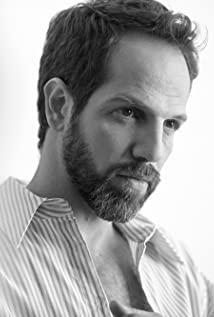When I was a kid, I thought faith was a very pure word, with a faint halo, the warmth of a spring afternoon sun.
Later, when we were in school, we learned a lot of stories of heroes who gave their lives because of their beliefs, who fought for their lives because of their beliefs, who died because of their beliefs, and so on. These heroes all look so flawless, in every story they are like this scene before your eyes: a faint halo, waving to you from a great distance, a smile pure and firm.
I still think faith is a very pure word, but after you read too many historical stories, it feels like a baby, coming out of nothing, pure and beautiful. However, because of the power endowed by this purity, it is ruthlessly used, arbitrarily interpreted, imposed on the will, and ultimately, serves the cruelty, selfishness and interests of human nature.
The philosophy of Hypatia has a questioning quality that Christianity does not allow. But it was the Christian pursuit of faith that gave Davus, who was a slave, freedom, the freedom of the mob, and self-respect, but he was full of doubts: I do have freedom that seems to be free, but I seem to see no miracles, only Is it really God's will to experience continuous killing?
Even if Orestes converted to Christianity for a political career, he was still struggling with reality. He was not a godless man, but he wanted to fight for the freedoms of the last ancient Rome, but he was not as good as Hypatia in seeing the situation clearly: Cyril already won.
At the beginning, when Christians roamed the streets, although these people held up crosses, they seemed to shout that they were actually "rebellious." The students of polytheism drew their swords against each other, but it was the most tragic way of confrontation. The students who were hiding in the academy naturally did not find the crowd of Christian followers until they fled in a hurry. The library that once symbolized everything was so unbearable. With a single blow, those repressed people and slaves have already formed a new trend, eliminating these high-minded people from history.
Hypatia is so high, so high, she only cares about the sun, the moon and the stars, she will never care about the humble Davus. "Why should I believe in a system that will always treat me as a slave", and Christianity gave Davus faith and strength to break down these aloofness, overthrow the slave owners, break the insurmountable identity and class, and let him raise his head and watch His goddess, also let his goddess see him clearly. However, Davus is also asking, what do I believe? Is it the bright future brought by faith or the constant killing?
Doctrine is meant to be explained, elaborated, and used. In that era, Christianity gave many people like Davus a new possibility, simple and feasible for everyone, full of cohesion, and able to fulfill their own wishes.
From the perspective of historical materialism, the masses of the people cast history, and the same is true at this turning point. A new system is rising, it is about to break the slave system in ancient Rome, and in the Middle Ages, people and public opinion were gained in the name of religion, and everyone opened the door together.
This is the era of Christian rule, holy warriors, crusades, the Inquisition, and the millennium in the Middle Ages was no longer than slave society, and after 1,200 years people picked up the academic research of the Athenian period again, and finally Understand the elliptical orbits of planets.
When it comes to belief, I don't know what color and temperature the belief is in the end.
It seems that you can find circumstantial evidence in other regions for every event to confirm the essence of human nature. I hope that in this era and the future era, belief, it will no longer be used for violence, belief, it will bring wisdom and freedom.
View more about Agora reviews











